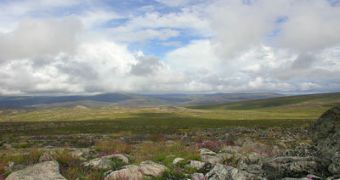Should the Arctic tundra turn into forests, more carbon dioxide could be released from the soil and clog up our atmosphere.
Not very long ago, we had a look at how global warming is beginning to take its toll on our Arctic vegetation by turning indigenous bushes into fully developed trees.
Now, most people would argue that this might not be such a bad thing environmentally wise, as forests are known for their ability to trap carbon dioxide and thus help us in our battle against pollution and climate change.
However, recent research argues that, as paradoxical as it might seem, having trees grow in this part of the world may in fact result in more CO2 being released into the atmosphere.
The rationale is as follows: up until now, the Arctic region did a pretty good job in containing carbon dioxide within its soils.
Should forests begin to develop here, this is quite likely to upset the natural balance of the land, by accelerating decomposition rates.
As ScienceDaily explains, increased soil decomposition rates are quite likely to allow the CO2 presently trapped in this part of the globe to break free and go all the way up into the air.
Dr. Gareth Phoenix, from the University of Sheffield makes it quite clear how touch-and-go this situation is when saying that “This is because tundra soil contains a lot of stored organic matter, due to slow decomposition, but the trees stimulate the decomposition of this material.”
He also adds that “Where before we thought trees moving onto tundra would increase carbon storage it seems the opposite may be true. So, more bad news for climate change.”
For the time being, specialists are trying to get ahead of Mother Nature and anticipate exactly which Arctic regions will develop the most prominent new plant communities.
Their end-goal is to figure out which soils are most likely to start releasing carbon dioxide in the not-so- distant future and if something can be done to counteract this phenomenon.

 14 DAY TRIAL //
14 DAY TRIAL //